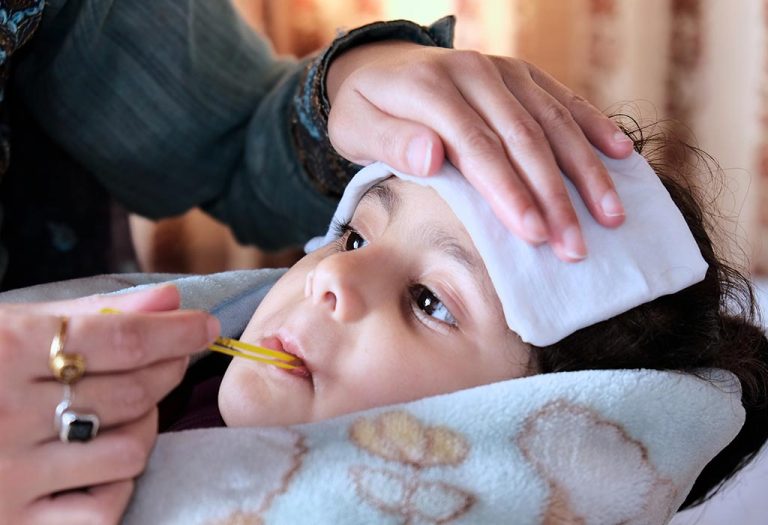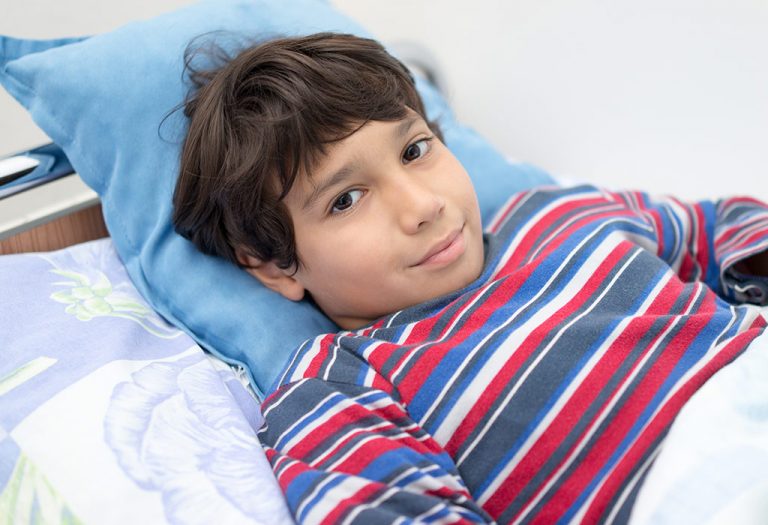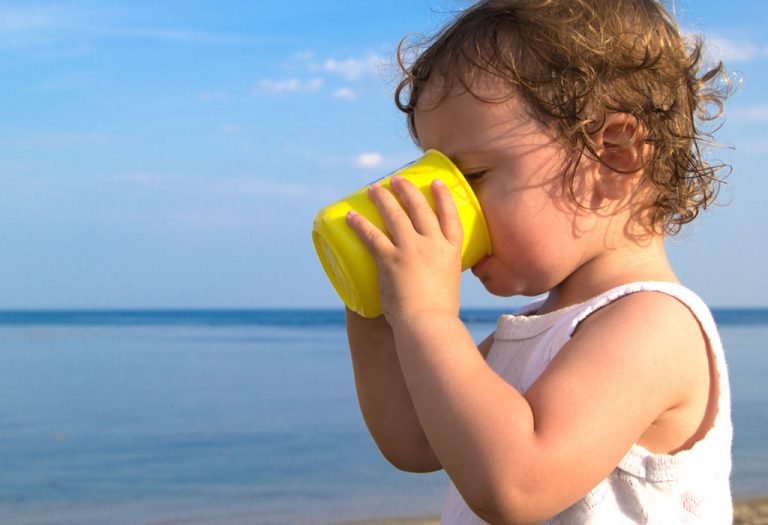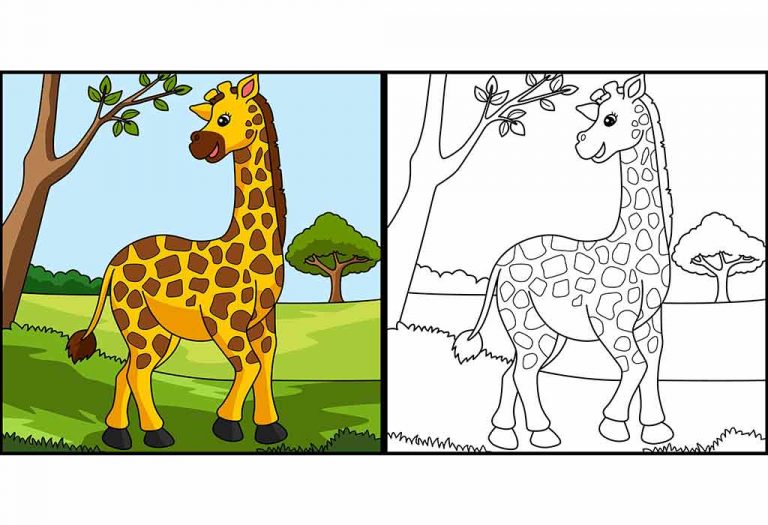Genital Herpes in Children – Causes, Symptoms, Diagnosis, and Treatment
Genital herpes is a condition wherein you develop sores around your genital area. There are two scenarios by which it can affect you. It can happen to you at the time of birth and is called birth-acquired herpes. Or else you can get infected anytime later in your life. Birth-acquired herpes might become a system-wide infection as well. It is called Systemic Herpes.
Systemic herpes is a serious issue. It might result in breathing problems, eye inflammation, brain damage, and seizures and affect the child’s vital organs like kidneys, lungs, liver, and central nervous system. We’ll be discussing the non-systemic genital herpes in greater detail in the upcoming sections!
What Is Genital Herpes?
A sexually transmitted disease (STD) spreads due to sexual intercourse with an infected partner. The infected person carries the herpes virus throughout their life, although the outbreaks might come and go.
Is Genital Herpes Common in Children?
Children getting genital herpes is a rare scenario. However, if the mother carries the herpes virus, there are chances that the child might become infected too. But genital herpes in babies can occur if the herpes outbreak happens to the mother just before the labor starts. The child might come in contact with the virus as it passes through the cervix and vagina. In such a scenario, the doctor might opt for a cesarean section.
But if the outbreak happens to the mother during pregnancy, there are fewer chances of it passing to the child. It is because the mother’s immune system must have produced antibodies to fight against the virus. These antibodies get transferred to the child via the placenta. So, the child remains protected against the virus. But if the outbreak happens towards the end of the pregnancy, the doctor might go for a Caesarean section.
Causes of Genital Herpes
Two viruses are responsible for causing pediatric genital herpes. These are:
- Herpes Simplex Virus Type-1 or HSV-1
- Herpes Simplex Virus Type-2 or HSV-2
The more common cause out of the two is HSV-2. HSV-1 only causes cold sores around the mouth area.
Symptoms of Genital Herpes in Children
Once the child gets infected by the virus, they start to get flu-like symptoms. Medical consultation is required immediately in such cases. Following are the most prevalent signs of genital herpes in toddlers or children of any age group:
- Headache
- Itching and sometimes even pain in the genital area
- Blisters or bumps in the genital area
- Fever
- Tenderness and swelling in the groin glands
- Muscle Aches
- Abnormal discharge from the vagina or penis
- Painful Sensation or burning while urinating
You will see the first infection usually after 2-14 days of contracting the virus. You will witness blisters or bumps in the genital area that will last for about three weeks. Once the first infection subsides, the virus becomes dormant in the nerve cell and revives later when favorable conditions appear. The second time sores usually don’t last long. Some reasons that reactivate the virus in the future are:
- Some illness in the future that compromises immunity
- Stress
- Fatigue
- Sun exposure
- Girls can witness the outbreak during menstruation.
The only good thing is the subsequent outbreaks of the infection become less severe with time.
How Do the Genital Herpes Spread in Children?

Children develop genital herpes if they touch the mouth’s cold sores and then touch their genitals before washing their hands. Teenagers usually get genital herpes due to intimate relationships.
Two major conclusions that contribute to the spread of Genital Herpes are:
- Any form of unprotected sex with an infected partner can pose a risk of HSV-2 infection
- Touching genitals after touching the herpes sores without washing your hands
Another word of caution, even if the infected person does not have herpes sores at present, but they can still spread it. In the case of young children, if there is no history of getting in contact with cold sores, there is a possible chance of sexual abuse. The pediatrician might ask questions in this regard to identify the root cause.
How Genital Herpes Diagnosed in Children?
The following ways help in ruling out the presence of the disease in children:
- Analyzing the fluid from the sores
- Blood tests in the absence of sores
The doctor will ask you questions regarding being in contact with an infected person. In many cases, it becomes difficult to identify the source as the sores appear after months or years of catching the virus.
Genital Herpes Treatment for Children
There is no particular cure for genital herpes. The doctor will prescribe medicine during the outbreak, which reduces the severity and frequency of it. The medication also minimizes the risk of spreading the disease to others who come in contact.
Antiviral ointments or pills are used in the treatment of genital herpes. You can also be prescribed some daily suppressive therapy along with medication to prevent an outbreak. Children with severe or repetitive infections are advised to take some tests for immunodeficiency diseases like HIV. The test results help the doctor in deciding whether to prescribe antivirals or not.
How to Prevent Genital Herpes in Children?
Since there is no way to treat this disease, children must be taught ways to prevent it. Following ways help in preventing the disease:
- Children should be taught proper hand hygiene. They should not touch their genitals without washing their hands.
- Children should have healthy personal hygiene habits.
- Do not allow anyone with cold sores to kiss a baby. If you have it, don’t kiss the baby and wash or sanitize your hands before touching the baby.
- Teenagers should be provided appropriate sex education. It not only reduces the risk of developing genital herpes but also other STDs.
The following points are for the adults:
- When the child develops sores, antivirals minimize the severity and spread of the disease.
- Condoms limit the chance of developing genital herpes. But what if the virus is in the skin near genitals where the condom does not cover.
- If you are aware that you have the herpes virus and you had a recent outbreak during the later part of the pregnancy, tell your doctor. Let the doctor analyze the situation and decide whether or not to opt for a Caesarean section.
Genital herpes is a lifelong disease that generally affects adults. But it can affect children and teens too. The severity of this disease is no less in kids. However, transmission can be avoided altogether if adequate personal hygiene is maintained. Proper sex education should be given to teens. If you or your child witnesses any sores in the genital area without any other major symptoms, consult a pediatrician immediately!
Also Read:
Shingles in Kids
Pica in Children
Herpetic Gingivostomatitis in Kids
















